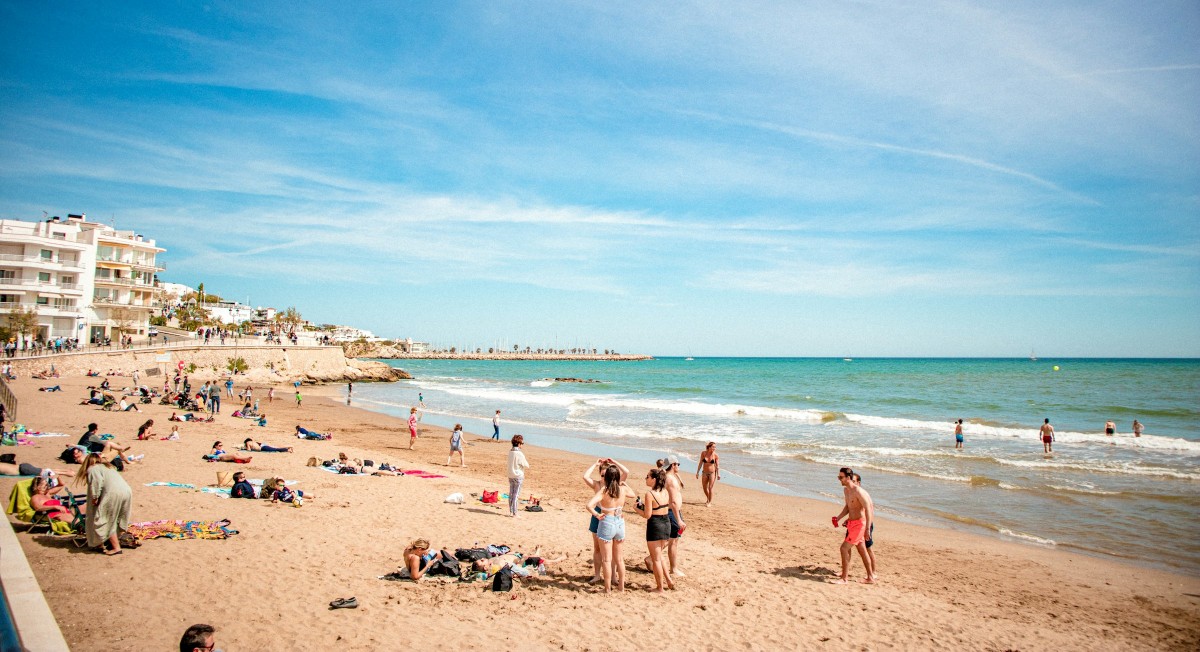
Spain’s coastline is world-famous, attracting millions of visitors each year to its beaches, from the Costa Brava and Andalusia to the Canary and Balearic Islands. But if you’re planning a seaside holiday this summer, it’s essential to know the latest beach rules in Spain — or risk facing unexpected fines.
Beach rules in Spain: why fines are on the rise
Spain’s stunning beaches are public spaces protected by the Ley de Costas (Coastal Law), a national law that ensures their conservation and regulates how they’re used. However, every municipality has the power to add local ordinances, resulting in different rules depending on where you are.
These Spain beach restrictions are designed to maintain cleanliness, safety, and respect for others. Breaking them—knowingly or not—can result in fines of up to €3,000.
Common beach fines tourists should watch out for
If you’re heading to the Spanish coast this summer, here are some of the most common offences that could result in fines:
- Pets on the beach: Prohibited on most beaches (except guide dogs), with fines up to €3,000. For more information on which beaches in Spain allow animals, check out our guide.
- Beach parties & loud music: Strictly regulated. Fines can reach €22 per square yard for unauthorised gatherings and €750 for playing music too loudly.
- Illegal street vending: Selling goods without a permit can cost up to €1,500.
- Tents & shelters without authorisation: Some municipalities, like Valencia, impose fines between €1,501 and €3,000.
- Using soap or shampoo at beach showers: Banned nationwide, punishable by a €750 fine.
- Urinating in the sea: Surprisingly, this can lead to fines of €705 in places like Vigo.
- Sleeping overnight on the beach: Fines range from €40 to €1,500, especially in Valencia.
- Reserving beach spots with towels or umbrellas: Can cost up to €750 in Benidorm and €300 in Malaga.
- Swimming under a red flag: Very dangerous—and expensive—with fines up to €3,000.
- Playing paddle tennis: Forbidden in areas like Benidorm and San Javier, Murcia, with fines up to €3,000.
- No smoking areas: Many beaches are now smoke-free zones. Fines for smoking where it’s banned can reach €450.
- Alcohol consumption: Though sometimes overlooked, fines for drinking on the beach or promenade can range from €1,501 to €3,000.
- Littering: Leaving rubbish behind could cost you between €751 and €1,500.
Why Spain is tightening beach laws
The beach rules in Spain are more than just bureaucracy—they're part of a nationwide push for sustainability, safety, and cleaner coastlines. Local councils are tasked with enforcing these rules to ensure beaches remain enjoyable for all and meet environmental standards.
Final tips for a hassle-free beach day in Spain
Before heading to any Spanish beach, check the local ordinances for that municipality. What’s allowed in one town could be strictly prohibited in another. Look out for signage indicating specific rules, especially for smoking, pets, and noise.
Enjoy the sun, sea, and sand—but respect the rules to avoid unexpected fines that could ruin your holiday. And to fit in like a true local, check out the top 10 tourist mistakes in Spain to avoid.
